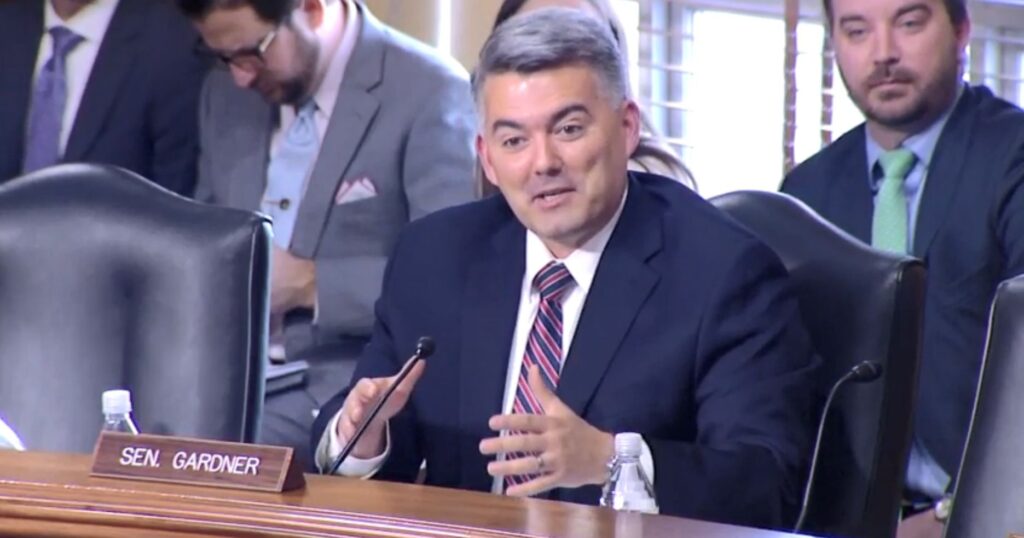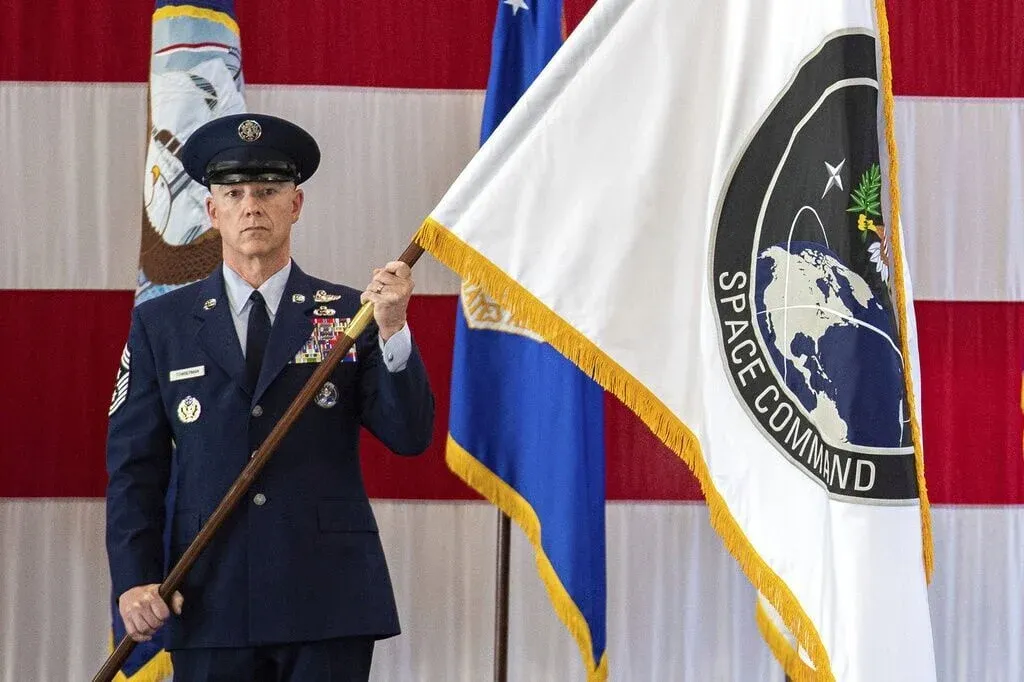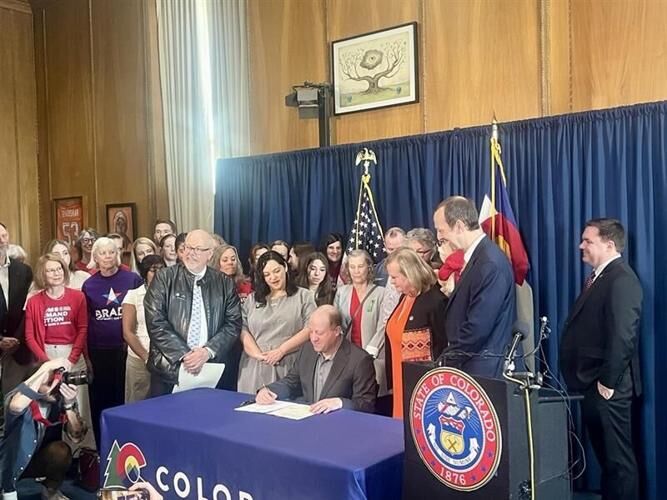Wife of Fort Carson soldier gets a reprieve from deportation

The wife of an active duty Fort Carson soldier who appeared on the verge of deportation got a reprieve Sunday. Jennifer Maradiaga-Baca and her husband, Sgt. Tyler Garza, walked out of Centennial’s Immigration and Customs Enforcement headquarters under a cloudless Colorado sky and held each other.
Just minutes earlier, as they entered through the wire fence into the brick government building at 12445 East Caley, Garza had braced for a terse meeting and a solo exit.
“There was a point where things didn’t look good,” he said.
Maradiaga, 30, had received three official letters from the U.S. Department of Homeland Security directing her to bring “any and all immigration documents.” Half-of-a-life ago, as a teenager, she illegally crossed the border from Mexico into East Texas. Despite several attempts, she never earned an American citizenship.
On Sunday, instead of detainment and likely deportation, she was given Alternative to Detention status because of her husband’s upcoming deployment.
Tuesday, she will report to a Denver office to be fitted for an ankle monitor “to ensure compliance with release conditions.”
Garza’s unit, Fort Carson’s 4th Infantry Division, is deploying to the Middle East this month. If Maradiaga had been detained and sent to Honduras where she was born, the 28-year-old squad leader said he would have been left with the difficult choice of staying behind to parent the couple’s two daughters.
Fort Carson, he told The Denver Gazette, was working with him to determine whether he should join his squadron.
For now, the Garzas will have a homecoming with their seven and 11-year-old daughters in a Fort Carson family housing, but everything is so new, they’re not sure what the future holds. This new turn of events raises the possibility that Garza will be able to deploy.
“Right now, I just need a nap,” he said.
On Sunday morning, after a sleepless night, Maradiaga said goodbye to her girls. She left home-made pork tacos for their dinner with extra meat so that “they could have food for the week” if she did not return.
The couple waited until the last minute to drive from the Army post to Centennial in Garza’s white truck, leading a small caravan of their closest friends.
“That’s my squad leader,” said Specialist Duncan Cannon, dressed in his camouflage uniform and regulation boots. “Tyler’s gotten me through too much stuff. I would never abandon him.”
Maradiaga’s mind was so crowded she did not bring a change of clothes or a toothbrush with her to the meeting. Instead, she balanced a stack of records 3 inches thick, a 15-year paper trail of documentation starting from when she crossed the border from Mexico into El Paso, Texas, to join their mother — who may have already been in the U.S. on asylum — in 2010, O’Connor said.
According to a Department of Homeland Security spokesperson, Maradiaga allegedly entered the U.S. by “wading the Rio Grande River west of the Hidalgo, Texas Port of Entry, a place not designated as a port of entry.”
Immediately upon entry, the children were detained and placed into immigration proceedings. Immigration records showed Maradiaga was ordered for removal June 8, 2011.
“She had no legal documents to be in or remain in the United States. She was transported to the McAllen Border Patrol Station for processing,” a DHS spokesperson stated in an email.
Maradiaga’s lawyer, New York immigration attorney Kevin O’Connor, said the order followed her mother’s voluntary withdrawal of her asylum application.
“It appears that (Maradiaga’s) mother withdrew her asylum application in exchange for some sort of prosecutorial discretion, which would allow her as a minor to stay here in the United States,” O’Connor said.
O’Connor said: “Maradiaga still can be deported in the future but needs to get the removal order vacated so she can adjust her status.”
The Denver Gazette reached out for a comment from ICE, but there was no response as of this story’s publishing.
How it started
Garza and Maradiaga met while working at a Texas McDonald’s.
Five years later, on Feb. 16, 2020, they were married in the town of Allen but only had 48 hours as man and wife before he left for basic training at Fort Jackson in South Carolina.
From the beginning, Garza said an Army recruiter laid it on thick. Strong from construction work but deflated from a layoff, the officer told Garza he looked like he would be a good fit for service and assured the newlyweds that the Army would “handle” Maradiaga’s U.S. citizenship papers once he graduated.
According to a recent statement from the United States Citizenship and Immigration Services (USCIS) the agency confirmed it can, and does, aid soldiers and their families with the citizenship process.
“USCIS honors the sacrifices made by U.S. servicemembers and their families by providing dedicated resources and processes to assist with their immigration and naturalization journeys,” the agency statement read. “USCIS is proud to partner with the U.S. Army, U.S. Marine Corps, U.S. Navy, U.S. Air Force, and U.S. Coast Guard to promote this benefit.”
Garza said that promise was never followed through. When he became active duty, he called USCIS from Fort Hood, where the family was stationed and was allegedly told that he was never guaranteed special treatment.
O’Connor said Maradiaga flew under the radar staying in the states until three official notices, called a G-56 Call-In Letter, showed up in their mailbox.
A Fort Carson spokesperson from the base said the “Multicultural Support Office works directly with the Denver U.S. Citizenship and Immigrations Services field office to provide soldiers and their family members with free immigration and naturalization resources.”
There are plenty of uncertainties. As they got ready to drive home, Maradiaga sat in the front passenger seat. Her husband closed the truck door and released a puff of air as if he’d been holding his breath all of this time. He’ll deal with the uncertainties later, he said.
“It’s a win,” he said. “We’ll take it.”
The Denver Gazette reporter Mackenzie Bodell contributed to the story.













